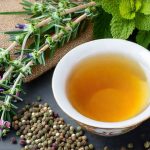The urinary tract – encompassing kidneys, ureters, bladder, and urethra – is often taken for granted until something goes wrong. Discomfort ranging from mild irritation to more severe pain can significantly impact daily life, prompting many to seek gentle, natural ways to support urological health. While a comprehensive approach involving medical consultation is always paramount, incorporating specific teas into your routine may offer soothing relief and contribute to overall wellbeing. This isn’t about replacing conventional treatment; it’s about exploring complementary methods that have been used for centuries based on traditional herbalism and anecdotal evidence. Understanding the potential benefits of various tea types can empower you to make informed choices about supporting your body’s natural processes, always in consultation with a healthcare professional.
The world of herbal teas offers a diverse range of options, each with unique properties. It’s crucial to remember that “tea” in this context often refers to herbal infusions – preparations made from dried herbs, flowers, roots, and fruits, rather than strictly from the Camellia sinensis plant (which produces black, green, white, and oolong teas). While traditional teas can be hydrating and contribute to overall health, it’s the herbal infusions that typically possess specific properties relevant to urological soothing. This article will delve into some of the most promising options, focusing on their historical uses, potential mechanisms of action (though more research is often needed), and considerations for safe consumption. It’s important to note that individual responses can vary significantly, and what works well for one person may not work for another. For those looking to further support kidney health through diet, exploring key vegetables can be a beneficial step.
Soothing Herbal Infusions: Core Options
Many herbal teas are traditionally associated with supporting urinary tract health, though the evidence base varies greatly. Some of the most frequently cited options include dandelion leaf, parsley tea, and nettle tea. Dandelion leaf is a natural diuretic, meaning it encourages the kidneys to release excess fluid, potentially helping to flush out bacteria and prevent stagnation – a common factor in UTIs. However, diuretics should be used cautiously by individuals with kidney problems or those taking other medications that affect fluid balance. Parsley tea, also a mild diuretic, is rich in vitamins and minerals and has been used historically to support kidney function. Nettle leaf, meanwhile, boasts anti-inflammatory properties and may help soothe irritated urinary tract tissues. It’s also a source of essential nutrients.
The key to successful urological soothing isn’t necessarily finding the “strongest” tea but rather identifying one that aligns with your specific needs and tolerance. For example, someone experiencing frequent urination might benefit from a mild diuretic like parsley, while someone dealing with inflammation may find nettle more helpful. It’s vital to start slowly, observing how your body responds before increasing consumption. Furthermore, purchasing high-quality herbs from reputable sources is crucial to ensure purity and potency. Organic options are generally preferred to minimize exposure to pesticides and herbicides. Considering a broader approach to dietary support can be helpful – exploring daily foods known to promote urinary tract health is advisable.
Finally, hydration remains paramount. While herbal teas can contribute to fluid intake, plain water should always be the foundation of a healthy hydration strategy. Drinking sufficient water helps dilute urine, reducing irritation and flushing out potential pathogens. Combining appropriate herbal infusions with adequate hydration is often more effective than relying on tea alone. Remember that this information doesn’t substitute professional medical advice; always consult with your doctor or a qualified healthcare practitioner before incorporating new herbal remedies into your routine.
Addressing Specific Concerns: Herbal Support
Beyond general urological health, certain teas can be particularly helpful for addressing specific concerns like bladder irritation and prostate support. Corn silk tea is often cited as beneficial for bladder inflammation due to its soothing properties and potential anti-inflammatory effects. It’s traditionally used to reduce urinary frequency and urgency. Saw palmetto, though typically consumed in supplement form, also has a long history of use in supporting prostate health. While it’s not strictly a tea (it often requires longer extraction methods), saw palmetto infusions can be made, offering potential benefits for men experiencing benign prostatic hyperplasia (BPH).
However, it’s important to approach these options with caution and informed awareness. Saw palmetto, in particular, can interact with certain medications, including blood thinners, so consultation with a healthcare professional is essential before use. Similarly, corn silk may not be suitable for individuals with kidney problems or those taking diuretics. The goal isn’t self-treatment but rather complementary support, used alongside conventional medical interventions when appropriate and under the guidance of a healthcare provider. For men specifically interested in prostate health, exploring prostate-soothing infusions may be valuable.
Dandelion Root & Leaf: A Deeper Look
Dandelion (Taraxacum officinale) is often underestimated, but both its root and leaf offer unique benefits. The leaf acts as a mild diuretic, while the root supports liver function, which indirectly impacts kidney health by assisting with detoxification processes. Preparing dandelion tea is straightforward: – Use about 1-2 teaspoons of dried herb per cup of hot water. – Steep for 5-10 minutes. – Strain and enjoy. Dandelion root often has a slightly bitter taste, which can be mitigated by adding a touch of honey or lemon.
However, it’s crucial to remember that dandelion is a potent diuretic. Individuals with kidney problems, heart failure, or those taking diuretics should exercise caution and consult their doctor before consuming dandelion tea regularly. Excessive diuresis can lead to electrolyte imbalances, so moderation is key. Dandelion’s ability to potentially interact with certain medications also necessitates professional guidance. Proper dosage and individual assessment are paramount. Understanding the broader concept of natural diuretics can help individuals make informed decisions.
Nettle Leaf: Inflammation & Mineral Support
Nettle leaf (Urtica dioica) stands out due to its impressive nutritional profile and anti-inflammatory properties. Rich in vitamins A, C, and K, as well as iron and silica, nettle tea can contribute to overall wellbeing while simultaneously soothing irritated tissues. – Use 1-2 teaspoons of dried nettle leaf per cup of hot water. – Steep for 5-10 minutes. – longer steeping times may increase the concentration of beneficial compounds. – Strain thoroughly before drinking. Nettle’s stinging properties are neutralized during drying and brewing, making it safe to consume.
Nettle tea can be particularly helpful for individuals experiencing bladder irritation or mild urinary discomfort. Its anti-inflammatory effects may help reduce swelling and pain. However, similar to dandelion, nettle is a diuretic and should be used cautiously by those with kidney problems or taking diuretics. It’s also important to note that nettle can interact with certain medications, including blood thinners and diabetes medication. Always prioritize professional medical advice. To complement these efforts, consider incorporating anti-inflammatory foods into your diet.
Parsley Tea: Gentle Diuretic & Kidney Support
Parsley (Petroselinum crispum) is more than just a garnish; it’s a valuable herbal remedy with a long history of use in supporting kidney function. Its mild diuretic properties help flush out toxins and prevent urinary stagnation. – Use 1-2 tablespoons of fresh, chopped parsley or 1 teaspoon of dried parsley per cup of hot water. – Steep for 5-10 minutes. – Strain and enjoy. Parsley tea has a distinct flavor that some may find strong; adding a slice of lemon can help improve the taste.
Parsley is rich in vitamins A, C, and K, as well as antioxidants, contributing to overall health. However, individuals with kidney problems or those taking diuretics should exercise caution when consuming parsley tea, as excessive diuresis can be detrimental. Parsley also contains oxalates, which can contribute to kidney stone formation in susceptible individuals. Moderation and individual assessment are crucial. For a more holistic approach to hydration, explore morning hydration techniques that support bladder health.





















